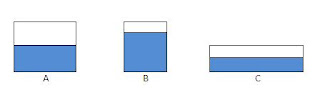Ten Reasons Why We Need to Clean Water
1. Clean water is vital to the human body.
The human body is 50 to 70 per cent water, and needs a regular supply of clean water to maintain health. We need clean drinking water. We need clean water for cooking and making beverages. Healthy eating and clean water go hand in hand. We must work to clean water worldwide in order to maintain sufficient sources to supply this need.
2. Clean water is vital to our food.
If we fail to clean water and keep it clean, we will be shut up to a diet of contaminated food. Not only fish, but other meats, fruits, and vegetables will deliver contamination to us. If we want healthful, clean fish to leap forth from rivers, streams, and oceans, we will have to clean water. If we want healthful, organic produce, we will have to clean water used to irrigate produce.
3. Clean water is vital to human health.
Clean drinking water is vital to health, yet the UN and the World Health Organization (WHO) report that 1.1 billion people around the globe lack access to clean drinking water. The health consequences are devastating. The UN attributes 2.2 million deaths annually to poor water and sanitation. If we clean water, provide better sanitation, and teach people how to keep water clean, future generations can enjoy longer and healthier lives.
4. Clean water is essential for water sports.
A swimmer in clean water is safe from illnesses and diseases produced by contaminated and toxic water. A surfer does not have to fear swallowing water in a wipe out. Boaters and others who use our water for recreation can relax without concern about pollutants. Yet, 27 years after the passage of the 1972 Clean Water Act, 40% of our rivers, lakes, and estuaries were still too polluted for safe swimming and similar water sports.
5. Clean water is essential for fish and other wildlife species.
As humans, we must consider the needs of fish, whales, water fowl, and other wildlife species that live in water. We must clean water when there are oil spills, of course, but we must also work to clean water flowing into our oceans, lakes, rivers, and streams. We must clean water for wildlife that does not live in the water, but depends on clean water for health and cleanliness.
6. We need to clean water to cut down on our carbon footprint.
The emissions involved in producing bottled water are astounding. Pablo Päster, Sustainability Engineer and MBA, did a thorough and exhaustive study of the cost of bringing a single liter of Fiji Water to America. He found that bottlers use nearly seven times as much water to bottle it than you actually drink. The total amount of water used to produce and deliver one bottle of imported water is 6.74 kg! In the process of making the bottle, getting water into the bottle, and delivering it to you, 250g of GHG emissions were released.
7. We need to clean water to cut down on refuse.
Each plastic drinking-water bottle takes hundreds of years to biodegrade in a landfill. Many plastic drinking-water bottles litter the countryside. Some will be recycled, but the recycling process is said to pollute the environment with toxic carcinogens. If we clean water so that it is truly free of contaminants, additives, bacteria, and virus, people are less likely to rely on bottled water.
8. Clean rain and snow are not givens.
Rain is just one step in the water cycle. Pure rain does not automatically fall through the universe, filtered by the atmosphere and delivered from pure clouds. Neither does pure snow. The rain, snow, and other precipitation we receive find their way into the sky from bodies of water on earth. If we fail to clean water on earth, we will have increasingly polluted precipitation. Polluted precipitation is harmful to everyone and everything on which it falls.
9. We need clean water for all-around cleanliness.
Whether it's your laundry in the Maytag washer, your carpet beneath the cleaning machine, or your body under the shower, clean water is necessary for all-around cleanliness. From early preschool years onward, children are taught proper hygiene - and it depends on clean water.
10. The consequences of inadequate access to clean water are too great.
Many have expressed growing concern that water wars are more likely in the future than current battles for oil. Where access to clean water is the very essence of life, "no water" may mean "no peace." A failure to clean water now may result in global warfare for future generations.
You may be able to add more reasons. You may substitute different reasons, but the bottom line is still the same. We need to clean water.
